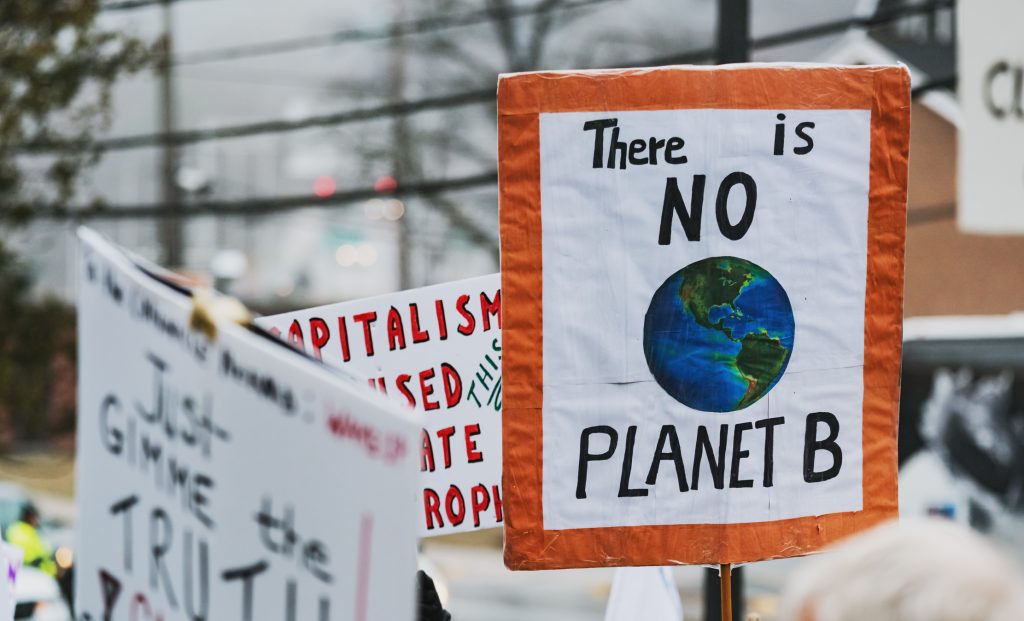Tom Ovenden, Faculty of Natural Sciences, University of Stirling
As world leaders prepare to gather in New York City for the UN Climate Action Summit, Tom Ovenden, PhD researcher in the Faculty of Natural Sciences, reflects on the climate strikes that taking place across the world, and the role of research in combating the climate emergency.

Today, I joined millions of others in coming together to raise awareness of the climate emergency facing our planet and demand action from our leaders. In over 4,000 locations around the world, students, activists and people of all ages and backgrounds joined together in an effort to hammer home the message that urgent action is needed if we are to tackle the existential threat to humanity and global ecosystems posed by climate change.
The simple but effective tactic, started by one dedicated individual just over a year ago, has brought about a global conversation on the need for everyone – from policymakers and regulators, to organisations and individual citizens – to play their part in halting global warning. As trade unionists, churches and community organisations join this youth-led movement, it is important to look beyond the headlines and consider the message at the heart of this process.
Speaking to US senators in Washington, Greta Thunberg – whose campaigning has helped bring the climate emergency such prominence – was clear: the mobilisation of citizens in more than 150 countries is indeed inspirational, but it is not praise or recognition we seek. It is a demand for the compelling scientific evidence to be heard. The scientific community is unanimous – the time to act must be now.
In October 2018, the Intergovernmental Panel on Climate Change (IPCC) reported that limiting global warming to 1.5°C would require rapid, far-reaching and unprecedented changes across all aspects of society. It is this far-reaching and immediate action that we are calling for if we are to avoid catastrophic and irreparable damage to our planet. Reducing our emissions requires the adoption of sustainable, low-carbon alternatives – from transport and energy generation through to agriculture and global finance. We also have the opportunity to foster attitudinal change and consider how we can adopt fairer, more inclusive approaches to economics, creating a genuinely prosperous and equal society. But most of all, it requires action.
The response from some politicians has been encouraging. The Scottish Government has placed the climate emergency at the centre of its Programme for Government, setting out the steps it plans to take to achieve net zero emissions.
It is also clear that combatting climate change requires leadership, and I mean true leadership. Societies and economies can make the transition to net zero emissions in a way that creates economic opportunity that is both inclusive and sustainable. However, there is a clear recognition that more needs to be done, both at home and around the world, if we are to limit warming to 1.5°C. Now is not the time to shy away from ambition.
Research has been instrumental in helping us to understand the scale of the challenge, and communicating the gravity of this threat to not just other scientists or policy makers, but to everyone. Research also holds the key to unlocking the innovative solutions that can make the rapid, far-reaching change that we need possible. Climate change is our problem, but it is not beyond us to identify and implement the solutions. The evidence is clear that change is necessary, and the chorus of public opinion amplifies that. However, it requires a deep, meaningful and coordinated commitment from political leaders to embed the transformations we need.
From Sydney to Stirling, our message to politicians is simple. See beyond the placards of protesters or the desire to be re-elected, and recognise the crisis that faces us. It is only through engaging in conversation and making long-term, cast-iron commitments that are actually delivered, that we can guarantee the security and wellbeing of future generations.
Tom Ovenden is a PhD researcher at the University of Stirling. His research focuses on forest ecology, resilience, and climate change.
